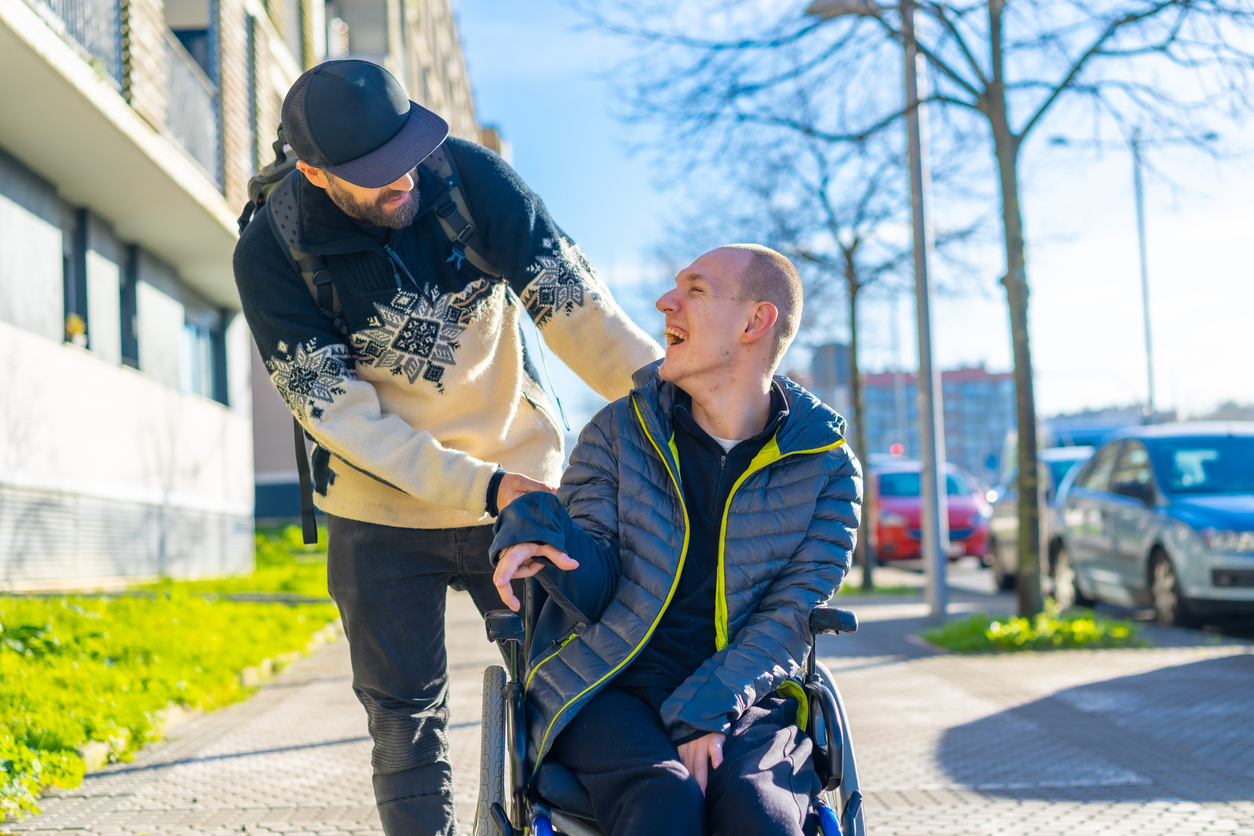“There is no one on the face of this Earth who is guaranteed living a portion of his/her life without a disability. This should not scare you, but motivate you to learn more about this segment, which constitutes nearly 20% of the nation’s population.”
- Scott Chesney, Coach & Consultant | Alliance & Thrive Advocate
National Disability Day is honored annually on December 3rd to help people become more compassionate and understanding about the challenges faced by people with mental and/or physical disabilities.
The mission of the day is to help people all over the world have equal opportunities for health, success, employment, and recreation. People with disabilities are valued members of society, and this day is all about appreciating them, as well as providing education, resources, and information for everyone to understand more about people who live with disabilities and ways to support them.
Ways to Show Compassion
If you aren’t disabled or don’t have a disabled loved one, it can be difficult to know what it’s like to live with a disability. National Disability Day is an opportunity to educate yourself and access resources and information. Non-disabled people can be unaware of all the things they do without difficulty and becoming aware of respectful ways to be helpful is a good start.
Finding common ground is the basis for all human connection. Just because someone is in a wheelchair or needs assistance walking doesn’t mean you don’t have a lot in common! Take time to get to know someone with a disability and focus on your similarities, not your differences. Having a disability is far from the most interesting thing about a person.
-
Know the right language to use
The words we use are important. Think about the difference between saying someone is a ‘spinal cord injury victim’ versus saying that person ‘has a spinal cord injury’. Referring to someone as their disability is short-sighted, so see past their disability and get to know them as a whole person. If you are unsure of the right terminology to use, get educated to avoid inadvertently offending someone. Don’t assume a disabled person sees their disability as a tragedy or loss, either.
Most people with disabilities have come through adversity and are proud of their abilities and all they have overcome, so be cautious about making incorrect assumptions, like saying ‘I’m so sorry this happened to you’ unless the conversation and/or situation warrants it. Also understand that words like ‘handicapped’ and ‘wheelchair-bound’ are outdated and no longer used (despite the prevalence of the word ‘handicapped’ on signs). For more information about communication protocol and etiquette when interacting with people with disabilities,
this article from the United Spinal Association is a helpful resource.
-
Don’t Underestimate Someone’s Abilities
Many people with disabilities are capable of caring for themselves without assistance. Be aware of someone’s needs, and always ask someone if they appear to need assistance before interfering. Ask someone if you can be of assistance and let them advise you if they do, and the best way to help. Saying something like, “Is there anything I can help you with?” or “Would you like me to get the door?” before assuming they need help is best.
Ways to Support People with Disabilities
While December 3rd is a day to nationally recognize people with disabilities, there are ways to support this community all year round. Here are some ideas:
Talk to your employer, and employers in your community, about their practices for recruiting and hiring people with disabilities. Inform them that people with disabilities can be a valuable contribution to the workplace. Make a point of supporting businesses that employ people with disabilities and let them know you noticed!
Many people with disabilities need publicly funded services, and policymakers need to know about concerns and areas for improvement people with disabilities have with the quality of these services. Get informed about needs in your area and let them know!
Donate your time or money to an organization that supports the needs of people with disabilities.
Here is a list of some ideas.
-
Help someone in Your Community
Ask your local outpatient/inpatient clinic, VHA, senior center, or residence if they know of someone who needs assistance and offer to help. There are always needs - from picking up or delivering medication, getting groceries, or driving someone. These simple tasks help you make new connections and friends, too!
Keep an eye out around your community to see opportunities to make places more accessible for the disabled, and let your elected officials know of areas that need work. Encourage others in your community to do the same!
Join the Enemeez® Thrive Community!
The
Thrive Community Facebook Group is a private space for any person with a disability, as well as caregivers and healthcare providers that touch their lives. Our purpose is to provide a safe, educational space for group members to ask every question, connect with their peers, and empower each other through communication and connection. Our conversations are led by incredible individuals who themselves are living and thriving.
For more enlightening resources, information, and discussion join the
Enemeez® Thrive Community today!
Sources:
https://nationaltoday.com/national-disability-day/
https://blog.vancity.com/6-ways-can-support-people-disabilities/
https://www.orioniso.com/news/9-ways-to-celebrate/
http://www.unitedspinal.org/disability-etiquette/#basics
http://www.serviceandinclusion.org/index.php?page=basic
https://trust.guidestar.org/blog/2013/12/11/new-rankings-people-with-disabilities/













